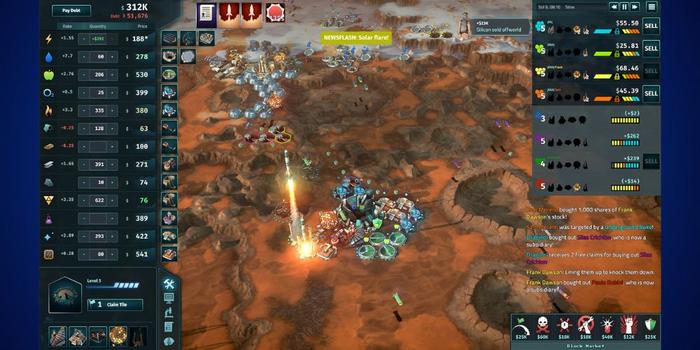The Office of the Vice President for Research and Innovation at The University of Texas at Arlington has granted 10 Research Enhancement Program (REP) awards valued at more than $130,000 to support new research initiatives.

Credit: Courtesy UT Arlington
The Office of the Vice President for Research and Innovation at The University of Texas at Arlington has granted 10 Research Enhancement Program (REP) awards valued at more than $130,000 to support new research initiatives.
The REP grant serves as seed funding for launching new research, providing a foundation for recipients to pursue future research and funding from external sources.
“UTA is committed to fostering a culture of innovation and research discoveries for our community of scholars,” said Kate C. Miller, vice president for research and innovation for UT Arlington. “These REP grants give our researchers the freedom to initiate creative endeavors aimed at making a difference for society, especially where the challenges are great. Our hope is that the seed funding will help professors turn their ideas into scholarly works that attract other organizations and investigators to support them going forward.”
The 10 award recipients are:
- Landscape Architecture Assistant Professor Letora Fortune Anderson and Public Affairs Assistant Professor Emily I. Nwakpuda: The two received a $16,000 grant for their project on community-based design for green infrastructure. Their research will investigate the extent to which residents of Arlington’s Johnson Creek understand their community’s environmental conditions—such as the ecological impact on their households caused by the degradation of the waterway—and their perception of local floodplain mitigation efforts. The data collected from this project will help stakeholders address the community’s environmental needs.
- Civil Engineering Assistant Professor Xiujuan Chen: Chen was awarded $12,000 for her project to improve PFAS water filtration. PFAS, or pre- and polyfluoroalkyl substances, are a group of man-made chemicals used to make everyday items like food wrapping, stain repellants, and nonstick cookware. PFAS chemicals do not break down easily and often end up in the water supply, causing health risks. Researchers have found that filtration processes using nanofiltration are effective, but they can often “foul” when organic materials bind to the membranes, reducing efficiency. Chen hopes to develop new nanocomposite membranes that can prevent fouling to improve filtration efficiency.
- Art and Art History Assistant Professor Fletcher John Coleman: Coleman received an $11,683 award for his project “Solace in Painting: Conflict Art of the Asian Diaspora.” Contemporary art markets are often driven by an unspoken interest in trauma. But what of artists from underrepresented communities whose lives were altered by conflicts of the 20th century, yet who chose to never directly represent their traumatic experiences? “Solace in Painting” explores artwork by conflicted artists of the Asian diaspora who never produced overt “conflict art.”
- Assistant Professors Leslie Ann Jennings and Regina Wilder Urban from the College of Nursing and Health Innovation: The duo received $16,000 to research social support, stress, and resilience among students preparing to apply to formal nursing programs. The insight gleaned into the well-being of nursing students will guide the researchers’ creation of course-specific content aimed at ensuring future nursing student successes, boosting retention rates, and equipping students with the tools necessary for their future nursing careers.
- Nursing Assistant Professor Sohyun Kim, Social Work Associate Professor Noelle Fields, and Mathematics Professor Shan Sun-Mitchell. The team received $16,000 for its project to promote quality of life for persons living with dementia and their family caregivers. The professors will conduct a feasibility study by providing six weekly video family visits with residents living with dementia in nursing homes. The team will monitor changes in the stress levels of participants using wrist bands and will assess family relationship quality, feelings of loneliness, and overall quality of life via surveys.
- Curriculum and Instruction Assistant Professor Taylor M. Kessner and Economics Professor Michael R. Ward: The professors received $16,000 for their project tracking eye movements of players using the off-the-shelf video game Offworld Trading Company. Tracking the movements will enable the team to create a cognitive map of how economists think about dynamic economics problems. This better understanding of expert thought processes will inform how and to what end educators will teach this critical 21st-century toolkit.
- Public Affairs and Planning Assistant Professor Hannah Lebovits: Lebovits received a $9,950 grant for her project studying supportive housing for formerly homeless older adults. The grant will enable her to evaluate housing support services and determine their capacity to respond to the unique needs of homeless individuals over the age of 55. The findings will be used to inform policymaking and service provision efforts.
- Mathematics Associate Professor Suvra Pal: Pal received a $12,000 grant to devise a precision-medicine machine-learning algorithm for all ailments. Currently, there are algorithms and decision trees that help people with cancer understand the likelihood of a cure along with the risks associated with treatments. With Pal’s new approach, the algorithm would be expanded to go beyond cancer treatments to also include risks and benefits associated with other diseases that may occur at the same time as cancer. Understanding the increased probability of additional ailments will help health care providers ensure adequate resources are available to offer the healthiest outcomes for patients.
- Finance and Real Estate Professor David A. Rakowski: He received $12,000 to examine the funding of conflict-linked investments in Africa. Specifically, Rakowski plans to identify the characteristics of institutional investors who appear to discourage conflict in Africa through their investments, as well as foreign institutional investors whose funding is correlated with increased conflict. This work will inform investors and policymakers on the potential impact of foreign investment on conflicts in emerging markets.
- Kinesiology Public Health Assistant Professor Feinuo Sun: She received a $10,483 grant to study county-level variations in chronic pain conditions among U.S. Medicare beneficiaries. The project is among the first to examine how geographic distributions vary across different pain-related conditions as well as to identify contextual determinants that shape the distributions.



